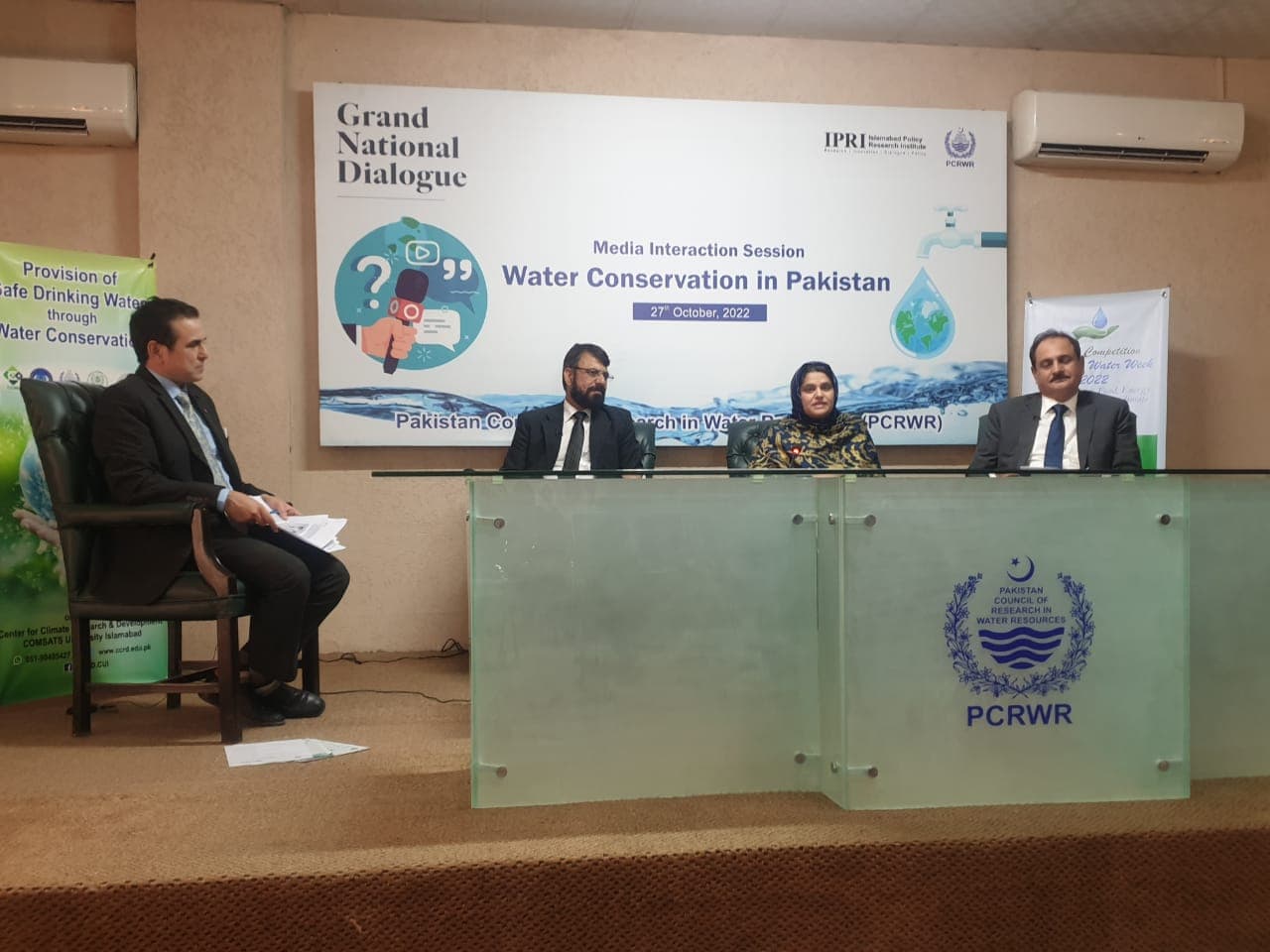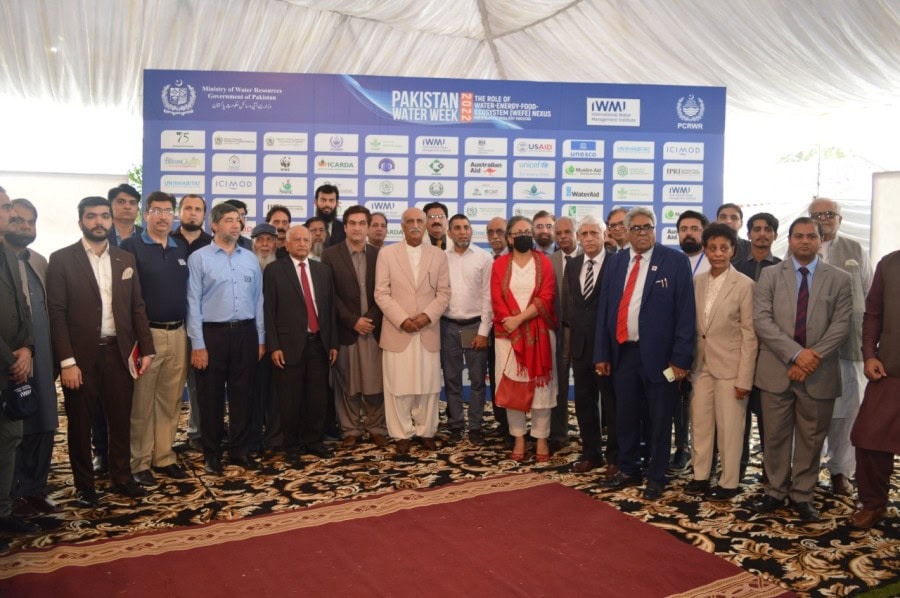Islamabad: Water resources week was celebrated at PCRWR, Headquarters in Islamabad, on Thursday, October 27, as part of the Grand National Dialogue series of brainstorming among intellectuals, policy-makers, stakeholders, and students. In this regard, Islamabad Policy Research Institute (IPRI) and PCRWR held a series of joint water resources awareness seminars and roundtables.
Federal Minister for Water Resources Syed Khursheed Shah graced the occasion and highlighted the need for water resource conservation and development. He emphasized the need for optimum water utilization to increase crop yield, which had a direct impact on national food security.
The federal minister exhorted the research teams to reach out to drought and water scarcity-hit regions of the country to provide technical solutions to practical problems.
The seminar was also attended by a panel of experts comprising Dr Rashid Aftab, Director Riphah, Riphah International University Islamabad; Dr Mohsin Hafeez, Country Representative, IWMI-Pakistan; Dr Hifza Rasheed, Secretary PCRWR Islamabad; and Toqeer Ahmed, Associate Professor Centre for Climate Research and Development (CCRD) COMSATS University. Dr Omar Khalid Butt from the PTV moderated the session.
Director IPRI Brig (R) Raashid Wali Janjua spoke on the subject, drawing the attention of the youth towards water scarcity for once a water-abundant country, and the need for innovative solutions to overcome that shortage.
The panellists highlighted the need for the development of more water reservoirs and a national conservation strategy predicated on attitudinal changes and effective water governance.
In this regard, an integrated approach coopting all federating units, water research institutes, local communities, media, and National Water Planning and Management institutions was recommended by the panellists.
It was regretted that efficient use of water had never been a policy perspective, and the precious commodity has been wasted. Moreover, the general psyche is that the commodity was treated as free and wasn’t valued.

Pakistan faces multiple problems, a few of them in the water and power sector are bulging population that harms natural resources, such as water. It is also directly impacting the food basket prospects of the country.
While Pakistan is an agro-based economy, the country had lagged a formal policy for water management and conservation. The first attempt was made in 2018, and to date, only one meeting had been held.
The aspect of private-public partnership was also highlighted and underscored that it is very important for a country of 220 million people. Modern technology and water distribution mechanism are in need of being introduced to make agriculture yield more produce, and at the same time make efficient use of available water.
Educating the farmers and introducing new mechanisms with the due provision of electricity was also stressed. It was noted that Pakistan is blessed with an abundance of air and water resources, yet its utility has been lagging in policy format.
The impact of climate change and the fear that by 2025 Pakistan will be a drought-affected country was also highlighted, and policy-makers were called upon to frame combat strategies, accordingly.
It was resolved that Pakistan has a serious issue of water management owing to inefficient policies, and lack of awareness among the masses makes it more critical.
The panel learnt that 83 to 90 per cent of water is used in agriculture, and the rest of the water in domestic consumption meets with lots of wastage. If dripping and channelized water as per the quantum of the crop is provided, water scarcity can come to an end, it was noted.










